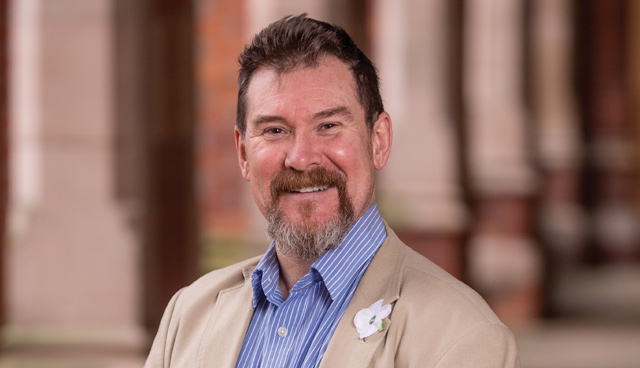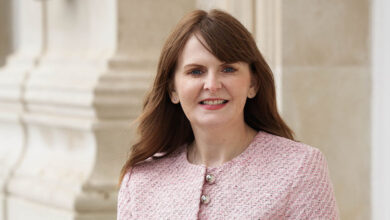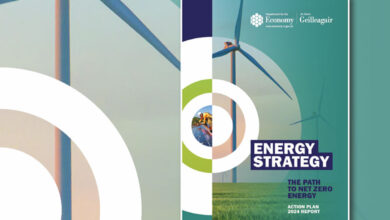How to ‘build back better’

Professor of Green Political Economy at Queen’s University Belfast, John Barry, discusses the pandemic, pluralism and tackling the planetary crisis.
Like buses, crises (including the opportunities that can also accompany them) seem to come in threes. First, we have Brexit and now the real possibility of a no-deal Brexit since the landslide election of Boris Johnson’s Conservative party. Second, the Covid-19 pandemic and the uneven manner in which governments, populations, businesses, trades unions etc. have responded, have devastated lives, communities and economies. Finally, looming above both of these is the planetary crisis – climate breakdown and the erosion of the life supporting systems of the earth. But not only do we face all three, they are also interrelated in complex and unpredictable ways such that addressing one of them could have impacts on the others. This is the trilemma of the turbulent times we live in. Additionally, this list does not include another connected crisis: the rise of right wing populism, xenophobia and ‘post-truth’ politics and ‘fake news’.
Lest you get too depressed too early in reading this, there is some good news. The good news is that we have seen some progress on green issues. The climate crisis in particular has crept up the political agenda. This can be observed in the rise of social mobilisations such as Extinction Rebellion and the Youth Strike for Climate movements that unexpectedly emerged in the last year. We can also point to the ‘green wave’ which saw support for Green Parties across Europe increase in the 2019 European elections.
Other positives are that Northern Ireland has also achieved almost 50 per cent of its electricity being generated from renewable energy sources, there is a Climate Change Bill going through the Assembly and the New Decade, New Approach deal has stressed the importance of a ‘just transition’ as we decarbonise our economy and move away from carbon energy.
I want to draw attention to the rise and importance of non-state actors and action, issues and forms of cooperation (existing and potential) organised around responding to the planetary crisis at local and global scales. Too often, the media, academia, think tanks and public discussion focus on the state, corporations/business, large organisations such as churches, trades unions to the neglect of civil society, localised political actors and agency. These local, non-electoral, non-policy, often more confrontational, oppositional, decentralised and grassroots forms of ‘small p politics’ are now discernible around our planetary calamity.
At the state and ‘big P politics’ level we witness a form of ‘wishful thinking and simulative green politics’, as governments blithely press ahead with ecocidal GDP economic growth, for example, which has long passed its sell-by date as an adequate, never mind ecologically appropriate, goal. This ‘wishful thinking’ is the dominance of techno-optimistic modes of framing solutions to the climate crisis within mainstream public debate and especially policy thinking within the state, with science fiction like proposals for carbon capture and sequestration or solar radiation management given serious attention, consideration and funding.
The ‘simulative green politics’ I am speaking of here is the ‘big P political’ rhetorical and public acceptance that there is a planetary emergency, as evidenced for example in the number of elected chambers from national, to regional and local levels across these islands that have declared ‘climate and ecological emergencies’, but then …nothing.
The response by states to the pandemic, now that is what a real emergency looks like.
Relatedly, think how the unprecedented existential crisis our species faces is presented as a ‘normal’ policy challenge that can and must only be framed and presented within such parameters. However, the planetary emergency is a ‘state of exception’ not something that can be or ought to be shoehorned into the normal policy process and its incremental reformist logic. As if the planet and its non-human living and geo-chemical processes cares for ‘Overton windows’ in policy making. This is what it means to ‘listen to the science’ as Thunberg and the Extinction Rebellion movement suggest. To continue in this provocative and radical vein, but remember ‘radical’ simply means getting to the root cause of a problem, and this has been solely lacking in nation-states addressing the global ecological crisis.
Our existing liberal democratic nation-state systems and associated capitalist socio-economic orders, the soft and hard ‘operating systems’ of the state, especially the ‘core state imperative’ of endless GDP economic growth, have now passed the threshold beyond which they are dysfunctional, sub-optimal and dangerous. Addressing our planetary crisis calls for more radical, structural transformation, not ‘greening’ business as usual.
“Addressing our planetary crisis calls for more radical, structural transformation, not ‘greening’ business as usual.”
We have now reached a stage where serious debate is given to Elon Musk’s dreams of colonising Mars, but where someone proposing that we need to transition beyond neoliberal capitalism and liberal democracy are viewed as utopian or misguided, dangerous or ‘politically immature’. More worryingly we have reached a stage where our young people, perhaps most clearly evident in those involved in the Youth Strike for Climate movement, can now more readily imagine the end of the world rather than the end of capitalism. The climate anxiety and apocalypticism experienced and felt by these young people, who do not have a vote though they do thankfully have a voice outside electoral politics, should bring shame on our generation.
We live in turbulent times. The UK is not simply exiting the EU, but we as a species are leaving the climatic stability of the ‘1,000 years of grace’ of the geological era known as the Holocene, for the dynamically unstable ‘Anthropocene’. At the same time, turbulence is needed to reimagine economics. Dissent, disagreement and discord should be encouraged. There are at least three reasons for this. Firstly, any ‘just transition’ to a post-carbon, post-capitalist society will produce ‘winners and losers’, thus necessitating conflict transformation processes within any sustainability transformative process. As such, disagreement needs to be included in any process not marginalised or supressed, as part of effective and democratically legitimacy problem solving.
Secondly, within our thinking about economics and the policy prescriptions that follow from that thinking, more than ever we need pluralism and challenges to the dominance of neoclassical economics. Revealing the ideological assumptions underpinning mainstream economics (there is no ideology-free conceptualisation of economics), opens up a long overdue opportunity for debate and discussion between different forms of political economy. We live in democracies after all where we have differences in how the state should operate, so why should it be any different in respect of the economy? The pandemic as befits a major crisis has made once marginal proposals possible and worthy of serious debate, whether university basic income, a jobs guarantee, nationalisation of parts of the economy or rethinking state finances as suggested by modern monetary theory. We need to maintain and defend this space against the calls for a ‘return to normal’ of the dominance of neoclassical business as usual. Normal was the problem.
Finally, the oppositional, non-conformist and sometimes outright confrontational character of such non-state actors contain the energy and insight for improvement and societal progress. As George Bernard Shaw astutely commented (and we will forgive him the sexism of his time): “The reasonable man adapts himself to the world: the unreasonable one persists in trying to adapt the world to himself. Therefore all progress depends on the unreasonable man.” Perhaps, just perhaps, with ‘our house on fire’ (Greta Thunberg) it might be time for us to be ‘unreasonable’ and do what is necessary?
John Barry is a Professor of Green Political Economy in the School of History, Anthropology, Philosophy and Politics and Queens University Belfast.





